The NCAA has reversed course on its plan to loosen betting rules for college athletes, after a proposal that would have allowed them – and athletic department staff – to place wagers on professional sports was voted down.
Division I members rejected the change on 21 November, stopping a rule that had been slated to take effect on 1 November.
Because the proposal passed the DI cabinet with less than 75% support, it entered a 30-day review period. During that window, member schools were permitted to overturn it, and more than two-thirds voted to do so before the 24 November deadline.
This decision keeps in place the NCAA’s long-standing ban on all sports betting by athletes and staff – a rule officials say is increasingly important amid rising betting-related incidents in both college and professional sports.
Recent cases have underscored these concerns. NBA player Terry Rozier and coach Chauncey Billups were arrested last month in connection with two major betting schemes. Billups was expected to appear in court today (24 November). The NCAA is also dealing with several internal investigations: six men’s basketball players were recently ruled ineligible for alleged betting violations, and former Temple guard Hysier Miller was found to have bet on multiple Owls games, including some against his own team. At least a dozen other cases remain under review.
Had it passed, the proposal would still have prohibited wagering on any college sports, but it would have allowed betting on professional leagues across all NCAA divisions. Because Division I voted against it, Divisions II and III will also maintain their full ban.
The debate generated strong divisions within college sports. SEC Commissioner Greg Sankey wrote to NCAA President Charlie Baker opposing the change, even though SEC representatives on the DI cabinet had initially supported it – demonstrating split views even within conferences.
NCAA officials said sports-betting enforcement cases have increased in recent years and emphasised that maintaining the prohibition protects competitive integrity and shields athletes from added risks as legal sports betting continues to expand.






















